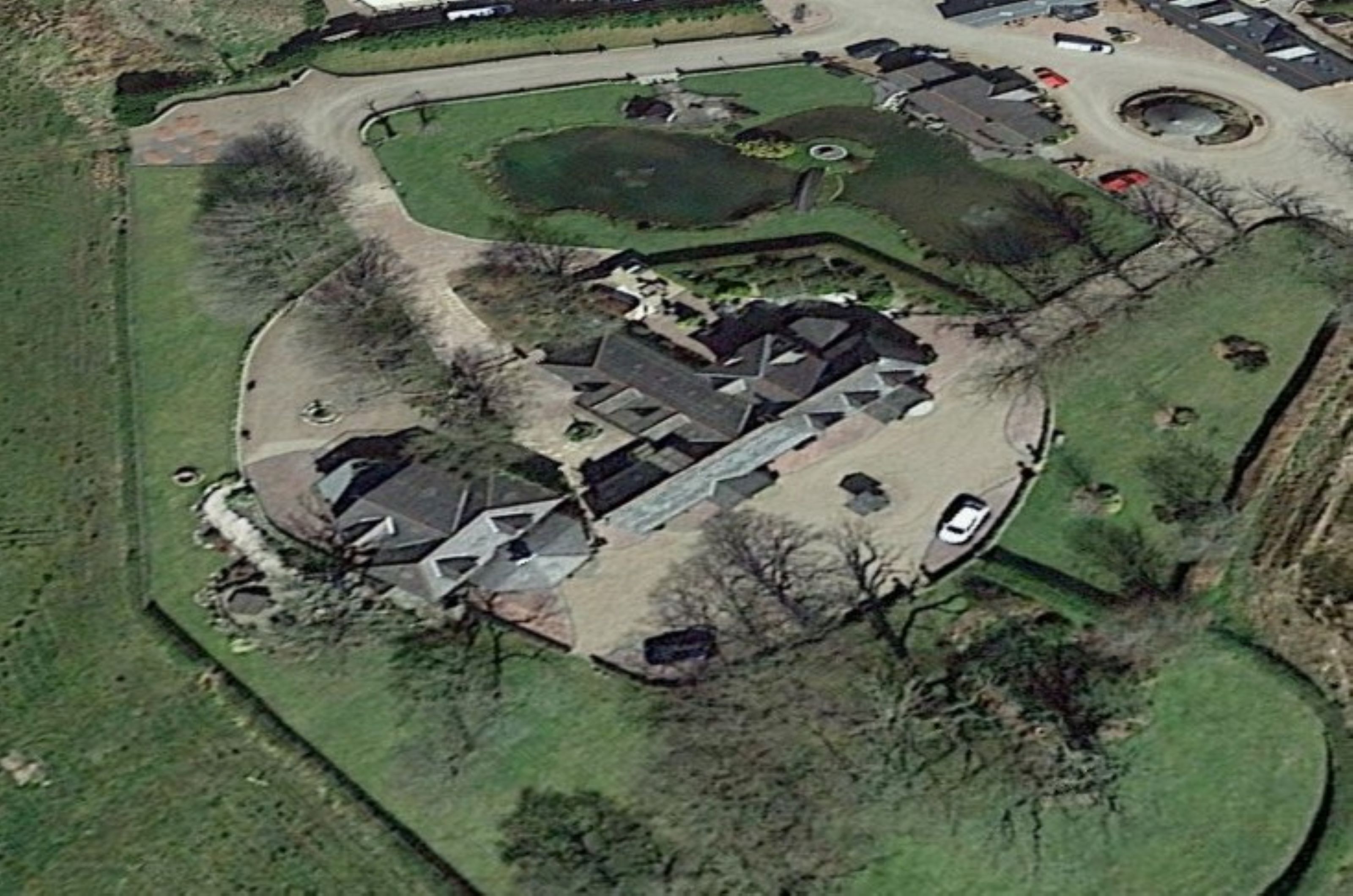Builder says order to demolish house built without planning permission near coal mine is against his 'human rights'
The entrepreneur built the house near a former coal mine without planning permission during Covid — but a subsequent retrospective application was denied and enforcement action taken because the council claims the home is "at risk of collapse"

An entrepreneur from Glasgow has been served an enforcement notice to take down a house he built during Covid as it never gained planning permission.
Gareth Wilson built the house on Tennox Farm estate near Kilbirnie, Ayrshire, which he then sought retrospective planning approval from North Ayrshire Council who rejected his application as the home was built on a former coal mine and was at risk of collapse.
He has since gone to the Scottish Government to claim the enforcement notice goes against his "human rights" in an effort to save the house and finally gain planning permission.
Sandstone home built during Covid lockdown
Mr Wilson built the property during the Covid lockdown before eventually finishing the house in December 2021.
The standalone, five-bedroom, sandstone house, features a Spanish slate roof while the interior features a spiral staircase and a balcony. The farm also features other homes which are used as holiday cottages.
However, it was found that Mr Wilson had failed to submit a formal planning permission to North Ayrshire Council for the house.
House has a 'significant risk of collapse'

Need more advice or inspiration for your project? Get two free tickets to the Homebuilding & Renovating Show.
The views of the Coal Authority were sought by the council to consider whether the home may be at risk, as it was built near the site of a former mine.
Get the Homebuilding & Renovating Newsletter
Bring your dream home to life with expert advice, how to guides and design inspiration. Sign up for our newsletter and get two free tickets to a Homebuilding & Renovating Show near you.
The Coal Authority stated: "The application site falls within the defined Development High-Risk Area; therefore within the application site and surrounding area there are coal mining features and hazards which need to be considered in relation to the determination of this planning application, specifically both actual and probable shallow coalmine workings."
"The report confirms that there is evidence of workings in shallow coal seams below the site" and that "new development and construction activity clearly has the potential to trigger new ground movement and the dwelling, as built, may therefore be at significant risk of collapse."
Even more concerningly it was found transient mine gases may also be beneath the house, which "may also pose a risk to the health and safety of any future occupants."
Enforcement served as home is not 'safe and pleasant'
Wilson submitted retrospective planning permission in March last year to North Ayrshire Council for the "proposed development of a new residential dwelling house".
However, this was rejected in February this year by the council, who stated: "Our Placemaking policy will ensure we are meeting LOIP priorities to make North Ayrshire safer and healthier by ensuring that all development contributes to making quality places."
North Ayrshire Council outlined their 'Six qualities of a successful place' in the application in which they justified the rejection.
The six qualities help determine whether a building gains planning approval, and these include a building which is, 'Distinctive', 'Welcoming', 'Safe and Pleasant', 'Adaptable', 'Resource-efficient' and 'Easy to Move Around and Beyond'.
The council claimed Wilson's house was not 'Resource Efficient,' as the home was built on "undeveloped agricultural land", and was not 'Safe and Pleasant,' due to the concerns from the Coal Authority.
It was also ruled: "In architectural terms, the design is not considered exceptional, bespoke nor site specific in terms of the associated 'Housing in the Countryside Note' as of June 2021."
Wilson appealed the decision to the Local Review Body (LRB) but the decision was upheld as they stated: "Having considered matters before the LRB, a motion was made that the proposal was contrary to policy, that the decision should be upheld and planning permission refused."
The council served Mr Wilson an enforcement notice to take down the house.
Owner claims action is 'against my human rights'
Mr Wilson decided to take his case to the Scottish Government after claiming the enforcement notice was against his human rights.
Documents submitted on his behalf said: “Upholding the notice without extending the compliance period would be contrary to the human rights of the appellant, his partner and family members.
“As the new house is the home of the appellant and his partner and the part-time home of the other family members, the reporter should consider, when determining the appeal, the implications of Article 8 of the Human Rights Act 1998.
“This is particularly important as the council did not consider the human rights of the appellant and his family when resolving to issue the notice.
“It is submitted that it would be disproportionate and therefore unlawful to uphold the notice without (at least) extending the compliance period.”
Wilson took the complaint to the Scottish Government but government reporter Fortune Gumbo said: “My findings are that the enforcement action proposed does not infringe on the appellant’s (and family) human rights, however, should an argument be made that there is an infringement, that infringement is on balance outweighed by the public interest objectives.
“I have considered all of the other matters raised, but there are none which would lead me to alter my conclusion that the enforcement notice should be upheld.”

News Editor Joseph has previously written for Today’s Media and Chambers & Partners, focusing on news for conveyancers and industry professionals. Joseph has just started his own self build project, building his own home on his family’s farm with planning permission for a timber frame, three-bedroom house in a one-acre field. The foundation work has already begun and he hopes to have the home built in the next year. Prior to this he renovated his family's home as well as doing several DIY projects, including installing a shower, building sheds, and livestock fences and shelters for the farm’s animals. Outside of homebuilding, Joseph loves rugby and has written for Rugby World, the world’s largest rugby magazine.
